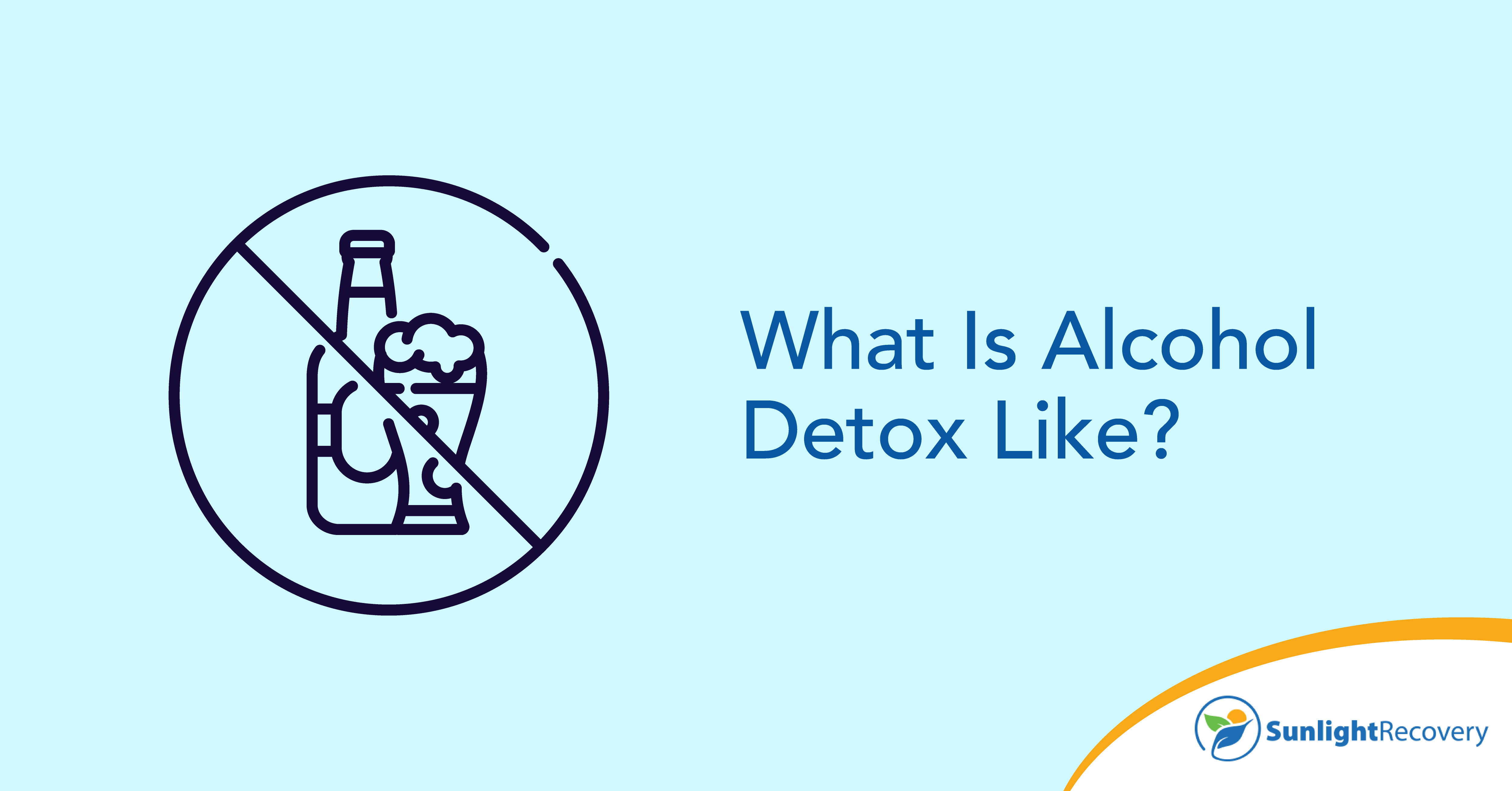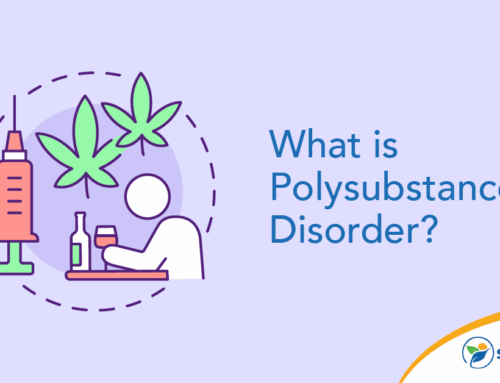Alcohol affects multiple body systems, so it’s been linked to cirrhosis, heart disease, stroke and other serious medical conditions. Excessive drinking and high alcohol intake also increase the risk of memory problems, mental health issues and emotional distress. If you’re ready to address your alcohol use disorder, the first step is to go through the alcohol detox process. Alcohol detoxification is a clinical process designed to help individuals safely detox from alcohol under the care of a medical professional.
Learn more about what detox is and how supervised detox can help preserve your physical and psychological well-being. During detox, it is important to monitor both physical health and psychological symptoms to ensure a safe and effective recovery.
The Purpose of Alcohol Detox
The purpose of alcohol detox is to eliminate all the alcohol from your body. When you drink, two enzymes break down each alcohol molecule. Eventually, your body breaks alcohol into water and carbon dioxide. These substances exit the body via breath, urine and sweat. After alcohol is eliminated, initial symptoms of withdrawal may appear within the first 12 to 24 hours, often starting mildly before potentially intensifying.
Alcohol stays in your blood for up to 12 hours, but it’s still detectable in urine for up to 5 days after your last drink. Therefore, the alcohol detox process takes a few days to complete, with the general timeline usually lasting approximately 7-10 days. Alcohol detox occurs primarily during the first 1-3 days, which is a critical period in the withdrawal process due to peak symptoms and increased seizure risks. Withdrawal symptoms may persist for weeks, although severe symptoms generally improve within 5 days.
Detoxification settings can vary, ranging from inpatient facilities to outpatient programs, depending on individual needs. Outpatient medically supervised detox may be an option for some patients, but involves higher risks due to less medical oversight.
What to Expect During the Alcohol Detox Process
So, what is alcohol detox like? It depends on your drinking habits and your overall health. People with alcohol use disorder develop a physical dependence on the drug, increasing the risk of withdrawal syndrome. Physical symptoms of alcohol withdrawal syndrome include agitation, sweating, high blood pressure, insomnia and fast heart rate. Withdrawal symptoms from alcohol can range from mild to severe depending on previous alcohol consumption. Acute alcohol withdrawal can occur in individuals with heavy or prolonged alcohol intake and may require medical intervention. Individuals who are heavy drinkers are more likely to experience severe withdrawal symptoms than those who drink less. Severe withdrawal syndrome may lead to seizures. Alcohol withdrawal seizures are a serious risk during acute withdrawal symptoms, and certain medications may be prescribed to prevent these complications.
Some people even develop alcohol hallucinosis, which is when an individual has hallucinations during the detox period. These hallucinations can affect the sense of sight, hearing and/or touch. Alcohol withdrawal symptoms can include hallucinations and seizures, which are serious complications. Severe alcohol withdrawal and severe alcohol withdrawal symptoms can be life-threatening and require immediate medical intervention. In severe cases, alcohol withdrawal syndrome leads to delirium tremens, a complication known to cause chest pain, confusion, fatigue, involuntary muscle contractions and other dangerous symptoms.
The range of symptoms highlights the importance of monitoring for severe symptoms and severe withdrawal symptoms, which can develop rapidly and may necessitate urgent care.
Alcohol Detox Timeline
The alcohol detox timeline can vary significantly from person to person, but it generally follows a predictable pattern based on the severity of alcohol dependence, overall health, and any co-occurring disorders. Typically, withdrawal symptoms begin within 6 to 12 hours after the last drink, starting with mild symptoms such as anxiety, tremors, and nausea. As the detox process continues, these symptoms can intensify, progressing to moderate and even severe forms. During this stage, individuals may experience confusion, hallucinations, and in some cases, seizures.
The most severe form of alcohol withdrawal, known as delirium tremens, can develop 48 to 72 hours after the last drink and is considered a life-threatening medical emergency. Symptoms of delirium tremens include severe confusion, rapid heartbeat, high blood pressure, and vivid hallucinations. Because of the potential for such severe reactions, medical supervision is essential throughout the alcohol detox timeline. Trained professionals can monitor your condition, manage symptoms, and intervene quickly if complications arise, ensuring a safer and more comfortable detox process.
Physical and Emotional Symptoms of Withdrawal
Initial symptoms of alcohol withdrawal often include mild anxiety and other early signs that appear within the first 12 to 24 hours.
During the alcohol detox process, you may experience several physical symptoms:
- Dilated pupils
- Clammy skin
- Headaches
- Loss of appetite
- Nausea
- Vomiting
- Difficulty sleeping
- Hand tremors
- Mild anxiety
Alcohol slows down the activity in the central nervous system. When you start eliminating alcohol from your body, your CNS becomes more active. This sudden increase in activity floods the brain with neurotransmitters, so withdrawing from alcohol also causes some emotional symptoms. You may feel anxious, depressed or irritable.
These psychological symptoms, such as anxiety and insomnia, can persist beyond the initial withdrawal phase and may require medical attention or support.
It’s also common for an individual withdrawing from alcohol to experience mood swings or feel jumpy, especially in an unfamiliar environment. The emotional effects of withdrawal have the potential to interfere with your ability to work, attend school or maintain positive relationships with your friends and family members.
Medical Supervision and Support Options
Since alcohol withdrawal can have serious physical and psychological effects, it’s not always safe to quit cold turkey. Home detoxification can be dangerous and is not recommended for individuals with a history of heavy drinking. If you try to detox on your own, you won’t have trained medical staff on hand to answer your questions and provide much-needed emotional support. Medical professionals play a crucial role in ensuring safe detoxification by monitoring your condition and providing appropriate care throughout the process.
Additionally, if you develop serious withdrawal symptoms, you’ll have to scramble to find a doctor who can help you. Delays in treatment increase the risk of serious complications. Treatment facilities are equipped to handle emergencies and provide immediate medical intervention if needed. If you decide to detox at home despite these risks, have a trusted family member or friend stay with you. They can provide emotional support, prepare nutritious meals and take other steps to help you through the initial detox period.
Individuals with a history of drug abuse or other substance misuse should always seek professional supervision during detox.
Supervised Medical Detox
Supervised medical detox is a safer option as it gives you access to doctors, nurses and other trained professionals. Alcohol detox programs often provide medication and nutritional support to stabilize physical and emotional health during the process. Alcohol detoxification is a structured, multi-phase process designed to manage withdrawal symptoms and ensure patient safety under professional supervision. If you experience discomfort, one of those professionals can prescribe medication to control nausea, headaches and other withdrawal symptoms. Certain medications, such as benzodiazepines and Keppra, are also used during detox to prevent alcohol withdrawal seizures. If you develop alcohol hallucinosis or delirium tremens, you’ll have access to immediate medical treatment, reducing the risk of serious complications.
Here’s what to expect in alcohol detox supervised by a team of professionals:
- 24-7 monitoring by trained medical staff
- Access to medications designed to increase your comfort
- Comprehensive evaluation for physical and psychological conditions that could affect your recovery
- Highly individualized care
Almost anyone can benefit from supervised medical detox, but it’s especially helpful for people who regularly use large amounts of alcohol. Supervised detox is also well-suited to individuals who crave alcohol when they’re not drinking or haven’t been able to quit drinking on their own. Residential treatment is an option for those who need intensive, 24/7 support in a structured, live-in environment.
Overall, supervised detox enhances safety and improves your chances of a lasting recovery. It also ensures you receive treatment tailored to your individual needs. For example, many detox programs screen for co-occurring disorders during the intake process. An individual has co-occurring disorders if they have two or more mental health conditions at the same time.
If you have alcohol use disorder and post-traumatic stress disorder, for example, your treatment plan needs to address both conditions. Otherwise, you may drink excessively as a way of coping with your trauma. Mental health counselors and online addiction support services are also available as part of comprehensive detox programs, providing accessible professional help throughout your recovery journey.
Alcohol Use and Relapse Prevention
Alcohol use disorder is a chronic condition that often requires ongoing support and a comprehensive treatment program to achieve lasting recovery. Completing the alcohol detox process is an important first step, but maintaining sobriety involves addressing the underlying causes of addiction. Effective relapse prevention strategies include participating in therapy and counseling, joining support groups, and considering medication-assisted treatment when appropriate.
Developing coping skills, identifying personal triggers, and building a strong support network are all crucial components of relapse prevention. Ongoing mental health services, such as regular counseling or therapy, can help manage any co-occurring mental health conditions that may contribute to alcohol use disorder. By staying engaged in the recovery process and utilizing these strategies, individuals can reduce the risk of relapse and support their long-term sobriety.
Finding the Right Treatment Program
Choosing the right treatment program is a vital step for anyone seeking recovery from alcohol addiction. A comprehensive program should offer medical detox to safely manage alcohol withdrawal symptoms, as well as counseling, therapy, and support groups to address the psychological aspects of addiction. When evaluating treatment programs, consider the qualifications and experience of the treatment team, the program’s approach to treating alcohol withdrawal, and the availability of essential support services like mental health counseling and case management.
It’s also important to select a program accredited by reputable organizations such as the Substance Abuse and Mental Health Services Administration (SAMHSA). Accreditation ensures that the program meets high standards for treating substance abuse and alcohol addiction. Look for a treatment program that offers a personalized plan tailored to your unique needs, ensuring the best possible outcomes for your recovery journey.
Preparing for the Next Steps in Recovery
Once you complete the alcohol detox process, it’s time to begin your recovery. Detoxification is not an addiction treatment, but it is vital as the first step towards recovery for many individuals. Alcohol addiction treatment includes detoxification, ongoing therapy, and aftercare to address all aspects of addiction.
Inpatient treatment is the most comprehensive approach, so it’s ideal for individuals with severe alcohol use disorder. You may also benefit from inpatient treatment if you have co-occurring disorders, as it’s possible to receive treatment for both disorders during the same stay.
Residential addiction treatment is helpful because it gives you around-the-clock access to a supportive environment. When you stay at an addiction treatment center, you also have time to focus on your recovery instead of worrying about work or family obligations. Treatment facilities, such as detox centers and inpatient rehab centers, offer a range of services to support recovery after the withdrawal process.
Not everyone can dedicate several weeks or months of their life to 24-7 rehabilitation. If you can’t take advantage of inpatient treatment, outpatient care offers access to some of the same services and support. Outpatient treatment programs allow individuals to live at home while receiving care, making it a flexible option after detox. For example, it’s possible to participate in cognitive behavioral therapy, group therapy and other services on an outpatient basis.
Outpatient treatment allows you to address your alcohol use disorder while maintaining employment or caring for family members. For many people, outpatient care makes easing back into daily life after completing inpatient rehab easier. Therapy, including individual counseling and group sessions, is often part of ongoing treatment following detox. No matter which type of treatment you choose, you’ll have access to plenty of support.
Completing the withdrawal process is just the beginning of a comprehensive alcohol addiction treatment plan that includes ongoing therapy and aftercare for long-term recovery.
Long-Term Recovery
Achieving long-term recovery from alcohol addiction requires ongoing commitment and support, even after completing a treatment program. Continued engagement in therapy and counseling can help address any lingering issues that may contribute to substance use. Support groups, such as Alcoholics Anonymous (AA), provide a sense of community and ongoing encouragement from others who understand the challenges of recovery.
Regular medical check-ups are also important for monitoring both physical and mental health, helping to catch and address any concerns early. By prioritizing ongoing care and staying connected to supportive resources, individuals can maintain their sobriety and build a healthier, more fulfilling life free from alcohol addiction.
Recovery Resources
A wide range of resources is available to support individuals recovering from alcohol addiction. National organizations like the National Institute on Alcohol Abuse and Alcoholism (NIAAA) and the Substance Abuse and Mental Health Services Administration (SAMHSA) offer valuable information, guidance, and support for those affected by alcohol abuse and substance abuse. Local treatment centers and support groups, such as Alcoholics Anonymous (AA) and SMART Recovery, provide in-person opportunities for connection and ongoing care. Support groups like Alcoholics Anonymous (AA) or SMART Recovery are critical for maintaining long-term recovery after detox.
For those who prefer flexibility or privacy, online resources—including virtual therapy and online support groups—can be an excellent option. By taking advantage of these resources, individuals can access the help they need at every stage of their recovery journey, ensuring they have the support necessary to achieve and maintain long-term sobriety.
Start Your Recovery Journey Today
If alcohol use disorder is damaging your body, interfering with your relationships or affecting your mental health, you don’t have to suffer in silence. Sunlight Recovery offers supervised medical detox to help you eliminate alcohol from your body in a safe, supportive environment. Many detox programs work to build motivation for ongoing addiction treatment through education and support. Detox centers often help connect patients to further treatment options as part of their discharge planning. Contact us today to schedule your admission or learn more about our inpatient and outpatient programs.







